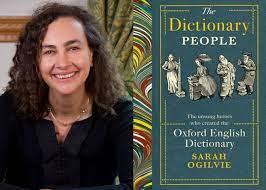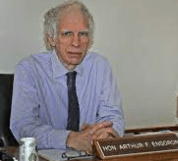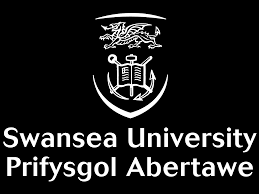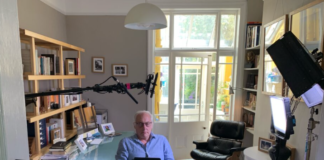- Torode to nowhere part one - 18th July 2025
- Cooking up trouble - 17th July 2025
- Numberless - 16th July 2025

During 40 years in journalism (when he was trained to use simple language, avoiding jargon), writing or speaking correct words have always been central for our Editor, Welshman Phil Parry, (while others, like Donald Trump have used the tired cliché, ‘WITCH-HUNT’ to describe the mounting problems he faces), and this is now underlined by revelations in a new book about the people behind dictionaries.
Earlier he described how he was assisted in breaking into the South Wales Echo office car when he was a cub reporter, recalled his early career as a journalist, the importance of experience in the job, and making clear that the‘calls’ to emergency services as well as court cases are central to any media operation.
 He has also explored how poorly paid most journalism is when trainee reporters had to live in squalid flats, the vital role of expenses, and about one of his most important stories on the now-scrapped 53 year-old BBC Wales TV Current Affairs series, Week In Week Out (WIWO), which won an award even after it was axed, long after his career really took off.
He has also explored how poorly paid most journalism is when trainee reporters had to live in squalid flats, the vital role of expenses, and about one of his most important stories on the now-scrapped 53 year-old BBC Wales TV Current Affairs series, Week In Week Out (WIWO), which won an award even after it was axed, long after his career really took off.
Phil has explained too how crucial it is actually to speak to people, the virtue of speed as well as accuracy, why knowledge of ‘history’ is vital, how certain material was removed from TV Current Affairs programmes when secret cameras had to be used, and some of those he has interviewed.
He has disclosed as well why investigative journalism is needed now more than ever although others have different opinions, how the current coronavirus (Covid-19) lockdown is playing havoc with media schedules, and the importance of the hugely lower average age of some political leaders compared with when he started reporting.

For any journalist words are crucial.
They form the backbone of what we do, and the right grammatical use of them, as well as their correct spelling, are absolutely vital. I’m talking here about ENGLISH (my first language), not WELSH – in which (although I speak it), I must confess constant mistakes are made, and the spelling is ropey!
This is emphasised by a book just out called The Dictionary People by Sarah Ogilvie, and in it Ms Ogilvie, a former lexicographer who served as an editor for the Oxford English Dictionary (OED), describes the incredible characters defining words and their usage, some of whom devoted YEARS to the task.
 The OED’s contributors are an engaging cast, and they include three murderers, a vegetarian vicar, one of Karl Marx’s daughters, as well as J.R.R. Tolkien. Katharine Bradley and Edith Cooper, aunt and niece, were lifelong lovers and successful writers, who co-wrote plays under a male pseudonym. For some, the dictionary was an obsession: one contributor supplied 165,061 quotations.
The OED’s contributors are an engaging cast, and they include three murderers, a vegetarian vicar, one of Karl Marx’s daughters, as well as J.R.R. Tolkien. Katharine Bradley and Edith Cooper, aunt and niece, were lifelong lovers and successful writers, who co-wrote plays under a male pseudonym. For some, the dictionary was an obsession: one contributor supplied 165,061 quotations.

It seems a shame that others don’t have this fixation with the correct use of words, and the cliché ‘witch-hunt’ is bandied around willy-nilly today, not least by Donald Trump as he confronts a growing list of problems.
Obviously the correct historical reference is how lurid and baseless accusations were used to condemn so-called ‘witches’ in days gone by, but it seems to be being used now as a way of smearing critics who have justifiable questions.


Let me give you an example.
In the latest legal controversy to swirl around Mr Trump, the New York Judge Arthur Engoron ruled that he had:
- Overvalued his Florida home Mar-a-Lago by 2,300 per cent in one financial statement.
- Overvalued his Penthouse at Trump Tower in New York by claiming that it was three times its actual size.
- “Absurdly” argued that calculating the area of the Penthouse was subjective, with the judge saying that “a discrepancy of this order of magnitude, by a real estate developer sizing up his own living space of decades, can only be considered fraud”.
Only last week he fined Mr Tump $5,000 following a disparaging social media post about one of his key court staffers, after he ordered it be deleted.

But, naturally, Mr Trump said the case against him was another political “witch hunt” brought by a prosecutor who was ‘biased’ against him, and he accused the judge of being “highly politicised”.
This was FAR from being the first time he has wielded this cliché.
In the bi-partisan House of Representatives investigation into the riot which is at the centre of another of his legal problems, it was revealed that Mr Trump had engaged in a “multi-part conspiracy”, but he attacked the results of their 18-month long inquiry, by saying on the same platform: “The highly partisan Unselect Committee Report purposely fails to mention the failure of Pelosi to heed my recommendation for troops to be used in DC, show the “Peacefully and Patrioticly” words I used, or study the reason for the protest, Election Fraud. WITCH HUNT!”.

Mr Trump, though, is not alone, and the word (or words) is/are being used ever more frequently today, but I would advise onlookers that its use means the accusation may be true!
Another instance is how it was used by the former Prime Minister, Boris Johnson, against critics who have condemned parties which were held in Number 10 or the garden, while everyone else was governed by lockdown rules.


It was screamed out in the row between Brussels and Warsaw, after Poland’s top court rejected the supremacy of EU laws, in a country where the nationalist Law and Justice party rules (for the moment anyway – see story soon!).
Polish judges had opposed the basic principle of EU legal primacy – a core pillar of the bloc’s rules order that all member states sign up to on joining. They repudiated significant articles of the EU treaties, including that member states will take “appropriate measures” to fulfil their obligations under EU law, and politicians as well as legal scholars have described the move as a “legal Polexit” which jeopardises Poland’s access to EU funds, along with the rights of its largely pro-EU population. But after the far-right populist French politician, Marine Le Pen, met Mateusz Morawiecki, the Polish prime minister, when he was hauled over the coals by his fellow leaders for this, she accused the EU of conducting a “witch-hunt”against Poland using “unacceptable blackmail”.

This was as the contentious right-wing Israeli Prime Minister, Binyamin Netanyahu had been put on trial for alleged corruption, when he had also accused his detractors of orchestrating a politically motivated “witch-hunt” against him.
Mr Netanyahu denied charges that he received illegal gifts from wealthy benefactors, and conspired with press barons to change media laws as well as regulations in return for favourable coverage. He was in court in the first criminal trial ever against a sitting Israeli leader. Mr Netanyahu had tried to pass laws that would have granted him immunity from prosecution, but failed to gain the necessary majority.

The one-time Defence Secretary Gavin Williamson has used the phrase, and the headline-grabbing nationalist former Czech Prime Minister Andrej Babis, has applied it, as well, when protests erupted in the country’s capital against corruption and fraud.
It has been employed, too, in Wales.
A ‘super-agent’ in the tragic case of the transfer to Cardiff City of footballer Emiliano Sala stood accused of fraud, but claimed he was victim of a “witch-hunt”.

During the extraordinary controversy at scandal-hit Swansea University (SU), where the police investigated alleged bribery in a multi-million pound land deal when senior officials including the ex-Vice-Chancellor (VC) Richard Davies, and the then head of his School of Management Marc Clement, were sacked for “gross misconduct”, it obviously cropped up!

In the long-running saga, support had been clear for the contentious previous Pro Vice-Chancellor (PVC), Hilary Lappin-Scott, who, The Eye exclusively revealed, was to leave.
An unbelievable anonymous campaign in her defence was undertaken using gmail or email, with messages sent to staff at SU as well as senior journalists (including me) and Welsh politicians. One message said: “Only Hillary (sic) can save Professor Boyle (Vice-Chancellor [VC] at SU) from the same incompetents that undermined Richard Davies’ stellar transformation of your Institution for the Region”. Another read: “Last week’s email was blocked – here it is below for completeness’ sake. Ask yourself: what else is the leadership keeping from you?… Why is this witch hunt therefore still continuing?”.

However my journalists have shown how Professor Lappin-Scott had enraged her staff at SU, by sending tweets from glamorous parts of the world on university ‘business’, and the exploits became the subject of The Eye’s satirical writer.
Despite this, the anonymous communications have claimed in the past that Professor Lappin-Scott would lead the university to “an era of gold and honey”.


The term ‘witch-hunt’ was used, too, as inquiries continued into the £200 million pound Pentre Awel (Breezy Village) (previously known as the ‘Wellness Village’) land deal at Llanelli where the police were called in.
The troubled institution has confirmed that apart from looking into the campaign itself, the police were involved in investigating alleged bribery during this so-called ‘witch-hunt’. An official statement from Swansea’s ‘Associate Director Vice-Chancellor’s Office, Head of Legal and Compliance Services’ stated : “Alongside the University’s internal disciplinary process, there is also on-going police involvement (i) with regard to the issues uncovered during the University’s investigation; and (ii) anonymous communications sent to University staff relating to the suspensions and disciplinary processes. The matters under investigation are very serious. The University has invested a significant amount of resource investigating the alleged misconduct, as have the authorities. It is essential that nothing is done to undermine the on-going processes. They must be allowed to run their course without interference.”

The stunning ‘witch-hunt’ campaign at the university also formed a worrying backdrop to an exclusive disclosure on The Eye, that officials had hired a fraudster called Steve Chan who worked on a contract at the management school, and after my journalists there were alone in revealing how a previous Dean accused of bullying had died.
They showed how, apparently unknowingly, officials had even allowed Chan to represent the university in advising an international agency on the ways to combat fraud!
Chan had been imprisoned by a court in Boston, USA, for four years and three months, and ordered to pay millions of dollars in compensation. His jail sentence was followed by three years of supervised release, after he admitted one count of conspiracy to commit fraud and one count of mail fraud, he was also ordered to pay restitution of $12,596,298.

But the campaign inside SU alleging a ‘witch-hunt’ has been covered only partially by the mainstream media, and had been conducted ever since the incredible investigation was launched.
In part, one recent gmail to staff (and me) as well as the Chair of the SU council read: “Why are these things happening and being leaked to Sion Barry (the Western Mail Business Editor) and, in turn, Phil Parry (someone trolling Professor Hillary [sic] Lappin-Scott) whilst in the middle of an independent internal investigation?”. Another added: “Appended below you can find the previous installments (American spelling) and claims there has been “A trial by media, a kangaroo court, a selection of evidence and suspensions before interviews – almost as if the facts were at odds with the desired outcome”. Although again misspelt a further gmail was clear in the search for a new VC: “Please Hillary (sic) (Lappin-Scott) out (put?) your hat back in the ring!”.
 Four of the questions asked in a Freedom of Information Act FOIA request about Chan were:
Four of the questions asked in a Freedom of Information Act FOIA request about Chan were:
- What was the exact date that Professor Steve Chan of the School of Management registered for his Ph.D at Swansea University?
- What was the exact date that he undertook his viva voce examination for his Ph.D?
- Who were the members of his Ph.D viva committee (including external examiners)?
- Who approved the appointment of the supervisors for his Ph.D?

These seem to be perfectly reasonable questions, and they’re certainly not as eccentric as some of the people behind dictionary definitions of words in books.
But words matter, and thank goodness for those odd people!
Details written CORRECTLY, as Phil was gripped by the rare neurological condition Hereditary Spastic Paraplegia (HSP), have been released in a major book ‘A GOOD STORY’. Order it now!

Regrettably publication of another book, however, was refused, because it was to have included names.








